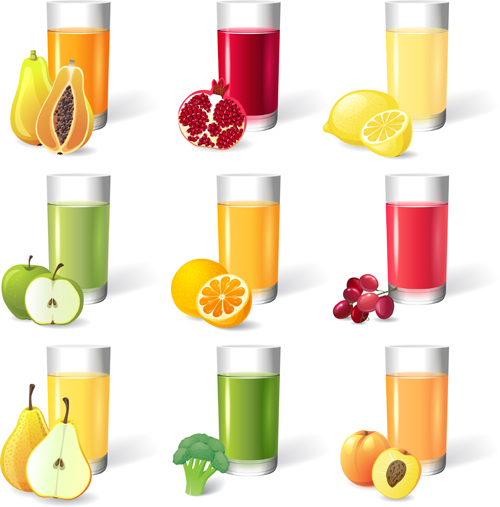How to Drink More Water Every Day
Water makes up more than 60% of the human body, playing a crucial role in nearly every bodily function. While we can survive several days without food, going just a few days without water is scientifically impossible. Proper hydration impacts everything from nutrient metabolism to the performance of vital organs especially the cardiovascular and excretory systems. To maintain hydration, your body needs adequate water primarily through drinking water and consuming hydrating foods. But how much is truly enough? While many people stick to the popular “8 glasses a day” rule, the truth is that hydration needs vary. Your body composition, activity level, climate, and even overall health influence how much water you should drink daily. Terms Used for Water Intake Hydration: It is the replacement of lost fluid, especially water, in the human body. Dehydration: It is when there is less inadequate water in the body system. Overhydration: It is a condition that occurs from drinking too much water. Hydration management: It is the practice of maintaining adequate fluid balance to prevent complications resulting from undesired or abnormal fluid levels. Methods of Hydration The easiest way to be hydrated is by simply drinking water. Another way to stay hydrated is by consuming other liquids that supplies the body with water, e.g, foods like tea, lemonade, lettuce, some vegetables, and most fruits. They all provide water that can help with hydration. Administering fluids through IV is usually the most common method used medically. This method is usually faster than taking water directly. Also, there’s another method which is to inject fluids directly into the tissues of the body for it to be absorbed. This method is the slowest process of hydration. You should manage your hydration so that you will not end up needing medical attention. Misconceptions About Water Consumption Drinking cold water causes some illnesses.Many, especially older folks believe that cold water could result in illnesses like cold. Some believe that it can make oil and fat foods turn into clogs that may affect the kidney and gallbladder which may later result in diseases years later. Drinking water while eating can disrupt digestion.Some people believe that drinking water between meals is harmful to the digestive system, research has actually shown that moderate water intake in between meals aids digestion. Drink water only when thirsty.A lot of people only drink water when they are thirsty. Actually, by the time you feel thirsty, you are already mildly dehydrated. This is an indication not to wait till you are thirsty before drinking water. Sachet water is safe because it is sealed.That something is sealed does not make it safe. Many sachet water producers do not follow proper purification standards. Clay pots make water healthier.While traditional clay pots keep water cool naturally, they do not improve water quality nor do they make water healthier rather they can harbour bacteria if not properly cleansed. These and many more misconceptions often lead to inadequate hydration or taking unsafe water, especially in rural and unexposed areas. Ten Signs of Dehydration If you do not drink enough water, these are the signs of dehydration you need to be aware of: Dark yellow urine with a strong smellExtreme thirstHeadachesLightheaded, or dizzinessMuscle crampsConfusionLethargyFunctional declineIncreased risk of fallRapid pulse Harms Dehydration can Cause the Body There are several harms dehydration can cause to the body. Some of them are:Swallow problemWeight loss/ weight gain which could be life threatening. FeverCongestive heart failureExcessive sweatingNauseaInfection Abdominal painParkinson’s Disease How Much Water Do I Need Daily Contrary to the popular belief of eight(8) glasses daily, there isn’t a set amount of water that everyone should drink in a day. Some factors determine the amount it takes to hydrate a person. They are: Body composition: People who are larger in size and have higher body mass require more water intake than people with smaller body mass. Activity level: A sporty person, and people who generally exercise and participate in physical labour will need more water than a regular person. Climate: Hot weather accelerates fluid loss which in turn requires more water intake than cold weather. Diet: Foods that are high in sodium, caffeine, and high alcohol intake increase hydration needs. Age: Elderly people because of reduced thirst sensation feel less thirst than the younger ones. Common Challenges to Staying Hydrated Many people forget to drink water probably because of their busy schedules or intense focus periods. Dislike for plain water. Many are in this category, so they would rather choose a beverages, e.g. soda. Inconsistency because of change in the environment. Not recognising early the signs of mild dehydration, e.g., fatigue, mild headache, and dark yellow urine colour. Certain medications and medical conditions increase dehydration risk. Read about the benefits of drinking water here Tips to Address Dehydration Challenges Start each meal with a glass of water. It helps with portion control and ensures regular intake. Keep a reusable water bottle near sight always. When you have water in sight, it may help you remember to drink water even in the middle of your busy schedules. For people who do not like plain water, you can add cucumber, lemon, or berries to your water for flavour. Drink a full glass of water when taking medication. Your water stations at home or work should be where they will be easily accessible. Replace soda with water. Add natural flavoring if you do not like the plain taste. Include water-rich fruits and vegetables like watermelon and cucumber slices in your meals. Set phone reminders at regular intervals if you have to. Be intentional about drinking water. Benefits of Hydration If the body is composed of about 60% water, why do we need to worry about being hydrated? Well, the body loses water daily through breathing, sweating, and getting rid of both liquid and solid waste. You may want to ask, how exactly does drinking adequate
How to Drink More Water Every Day Read More »




